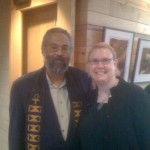 Psychology, Social Studies
Psychology, Social Studies  3 Comments
3 Comments The Gifts That Keep On Giving
 Almost every good and wonderful thing about the winter holidays is a sensory delight. The smells of cold snow and freshly cut pine and butter-rich cookies tingle in our noses. Pipe organs and French horns and jingly bells and heavenly choirs and crinkly paper delight our ears with musical sounds rarely used in the rest of the year. Velvety and satiny fabrics combine with delightfully scratchy sweaters and fuzzy hats in our special party clothes. We write ourselves dietary hall passes for the dozens of special, luscious holiday foods. And the lights…oh, the lights! Who doesn’t gasp and crane at the sight of an elaborately decorated building or brilliantly lit tree?
Almost every good and wonderful thing about the winter holidays is a sensory delight. The smells of cold snow and freshly cut pine and butter-rich cookies tingle in our noses. Pipe organs and French horns and jingly bells and heavenly choirs and crinkly paper delight our ears with musical sounds rarely used in the rest of the year. Velvety and satiny fabrics combine with delightfully scratchy sweaters and fuzzy hats in our special party clothes. We write ourselves dietary hall passes for the dozens of special, luscious holiday foods. And the lights…oh, the lights! Who doesn’t gasp and crane at the sight of an elaborately decorated building or brilliantly lit tree?
Now imagine all that cranked up to 11. Welcome to the holidays on autism.
Sounds amazing, right? But for autistics and their families, the holidays can be overwhelming and stressful. So many folks struggle with money and family drama and expectations about all things merry and bright, and with schedules and nerves and input jacked up on Kringle Fever. These things stress out the neurodiverse too–and they often have difficulty expressing what’s too much, especially if it feels like that’ll disappoint their loved ones. Naps, hugs (physical or otherwise), routines all go a long way to mitigate these stresses, and though you may feel like a Grinch insisting on bedtimes and dietary restrictions, you’ll be grateful later when you and your family have more spoons left over for fun.
All this is in response to a blog post I read over on Autism Daddy today (thanks to Joshua for the link!). He lamented his inability to participate in a common source of small talk among parents this time of year–what their kids want for Christmas. Every parent dreams of giving the perfect gift that makes their child light up brighter than starlight, but on autistics, that looks a bit different.
Still, you can give gifts that’ll make their lives easier and more enjoyable all year long. And I urge you all to resist the urge to jump to the conclusion that gifts for special needs kids have nothing in common with, or aren’t “as fun” as, the gifts neurotypical kids want. After all, autistics are “more human than human,” as I heard Paul Collins say on Speaking of Faith years ago. And the things that feel good to them often feel good to (or solve problems for) neurotypical folks too.

I don’t know a single kid who doesn’t love the hell out of jumping on a trampoline. If you give a kid a mini-tramp (with a handle and helmet!) that fits in their bedroom, or passes for an hour at the hangar-sized trampoline parks popping up in industrial parks, you would get a medal for Best Adult EVER from children everywhere.

And who doesn’t wish they had a chair that closes up like a clam some days? In today’s open-plan, no-doors work environment, I think these may be the Next Big Thing at the very best chair stores.
And this is just the beginning. There are loads of adaptive technologies which are practical solutions to everyday problems, and you’d be the hero for putting it under the tree. For example, kids are asked to write on whiteboards at school every day, but if you’re a lefty, you spend half your time trying not to drag your arm through what you just wrote and have to start all over again when you finish each line. This cool LCD lightboard eliminates that problem! And tags in the back collar of shirts and underwear drive everyone nuts, not just autistics, so be a hero and give a box of tagless clothes that can be worn under anything.
There’s an extensive list of assistive and adaptive technologies (both high- and low-tech) at the Research Autism website, but many of these things aren’t only available to therapists or educators anymore. Online speciality retailers like AutismShop.com and Autism-Products.com sell everything from squeeze machines to weighted blankets to awesome fidget toys (which make excellent stocking stuffers). And a lot of the best gifts for autistics are available right in your local Walmart or Target–exercise balls, tagless shirts and underwear, blankets with lovely silky binding and nifty textures, and glasses with clear, funky-colored lenses are all fantastic fun gifts for every kid.
(Important Note: You NEVER want to be the person who gives the Toys That Make The Noise. This is exponentially more the case for families with neurodiverse kids. They will hate you forever.)
It gets tiring being the educator-in-chief, and I definitely have days when I don’t want to explain autism and how the world feels through that lens one more time. But instead of feeling left out because you aren’t having the same experience as other neurotypical parents and children, it’s more fun to focus on what makes us all feel good. That’s a wonderful gift to give and be given, any time of year.
 I cringe as soon as I hear the bell ringing in front of the grocery store. My kids are primed to be generous, and immediately pester me for pocket change to put in the red bucket. I tell them “no” quietly and, to head off the inevitable “why” that follows, say, “They don’t believe they have to help everyone who comes to them in need, and I don’t want to support that.” I fast-walk the boys into the store and give the bellringer a tight smile.
I cringe as soon as I hear the bell ringing in front of the grocery store. My kids are primed to be generous, and immediately pester me for pocket change to put in the red bucket. I tell them “no” quietly and, to head off the inevitable “why” that follows, say, “They don’t believe they have to help everyone who comes to them in need, and I don’t want to support that.” I fast-walk the boys into the store and give the bellringer a tight smile.

 I’ve been working on the campaign for marriage equality here in Minnesota since March, and
I’ve been working on the campaign for marriage equality here in Minnesota since March, and 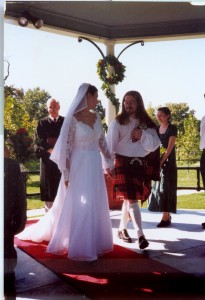
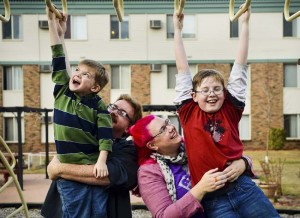



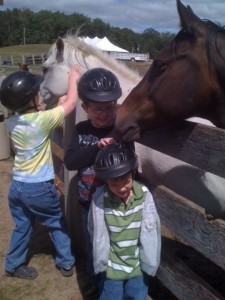

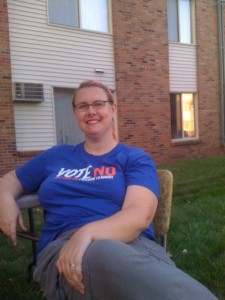
 Haidt also shares the results of his research into the moral foundations on which the edifices of conservative and liberal thought are built, and his conclusion is that part of the success of the modern conservative movement is based on the fact that conservative ideology appeals to a broader array of moral options than liberalism does. Since liberals often think of conservatives as “narrow-minded,” this sounds counter-intuitive, but really, it’s not. Liberals, Haidt demonstrates, derive their moral judgments almost entirely from whether something cares for or harms other beings, or whether it seems equalizing or discriminatory. Conservatives, on the other hand, respond less strongly to equality and care/harm, but additionally respond to messages of proportionality (more/less work=more/less reward), loyalty (to kin and other identity groups), sanctity (upholding standards of purity or pollution), and authority (respect for institutions), while many liberals actually perceive a threat from high degrees of those sources of morality. I think he’s really on to something, and I agree with what I heard Howard Dean talk about in a speech at Penn State, all the way back in 2004–that progressives won’t be able to accomplish their goals until they learn to articulate the morality of their position from all of these angles, and tap into the emotional heart of their message.
Haidt also shares the results of his research into the moral foundations on which the edifices of conservative and liberal thought are built, and his conclusion is that part of the success of the modern conservative movement is based on the fact that conservative ideology appeals to a broader array of moral options than liberalism does. Since liberals often think of conservatives as “narrow-minded,” this sounds counter-intuitive, but really, it’s not. Liberals, Haidt demonstrates, derive their moral judgments almost entirely from whether something cares for or harms other beings, or whether it seems equalizing or discriminatory. Conservatives, on the other hand, respond less strongly to equality and care/harm, but additionally respond to messages of proportionality (more/less work=more/less reward), loyalty (to kin and other identity groups), sanctity (upholding standards of purity or pollution), and authority (respect for institutions), while many liberals actually perceive a threat from high degrees of those sources of morality. I think he’s really on to something, and I agree with what I heard Howard Dean talk about in a speech at Penn State, all the way back in 2004–that progressives won’t be able to accomplish their goals until they learn to articulate the morality of their position from all of these angles, and tap into the emotional heart of their message.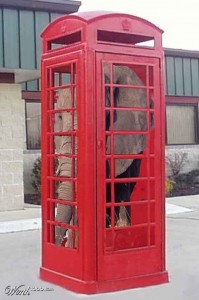
 But when tragedy strikes, as expected, in the movie, suddenly I’ve got a sobbing pile of six-year-old on my lap. His bony little shoulders are shuddering, and hot tears soak my collar. I stroke his hair and whisper to him that it’s okay, he’s safe, and I know it’s sad, but it’ll get better, until he slowly uncurls and starts watching again. He doesn’t leave the shelter of my arms until the credits begin to roll.
But when tragedy strikes, as expected, in the movie, suddenly I’ve got a sobbing pile of six-year-old on my lap. His bony little shoulders are shuddering, and hot tears soak my collar. I stroke his hair and whisper to him that it’s okay, he’s safe, and I know it’s sad, but it’ll get better, until he slowly uncurls and starts watching again. He doesn’t leave the shelter of my arms until the credits begin to roll. It happened when we went to see Chimpanzee at our favorite bargain theater last weekend. It happened when Claudia and Jamie spent their first lonely night in the Met, as I read From the Mixed-Up Files of Mrs. Basil E. Frankweiler. It’s happened at a variety of TV shows and movies at home.
It happened when we went to see Chimpanzee at our favorite bargain theater last weekend. It happened when Claudia and Jamie spent their first lonely night in the Met, as I read From the Mixed-Up Files of Mrs. Basil E. Frankweiler. It’s happened at a variety of TV shows and movies at home.
 I’m volunteering for
I’m volunteering for 